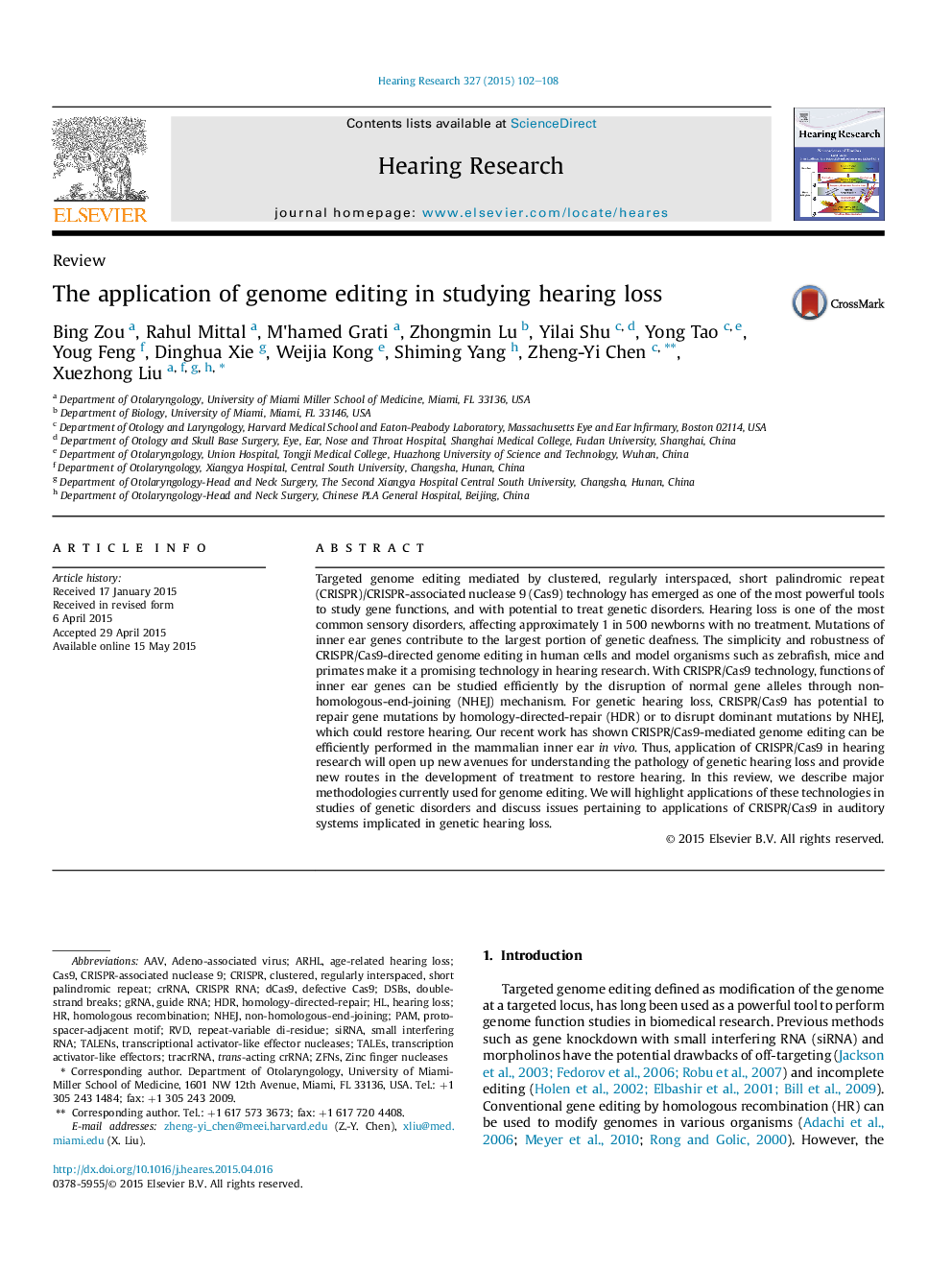| کد مقاله | کد نشریه | سال انتشار | مقاله انگلیسی | نسخه تمام متن |
|---|---|---|---|---|
| 6287296 | 1615573 | 2015 | 7 صفحه PDF | دانلود رایگان |
- Targeted genome editing using CRISPR/Cas9 is a powerful tool to perform genome function studies.
- Applications and challenges of CRISPR/Cas9-mediated genome editing are discussed.
- CRISPR/Cas9-mediated technology has implications in human genome editing in genetic hearing loss.
- Zebrafish, mice, and primates can serve as model organisms to harness the potential of CRISPR/Cas9-mediated genome editing.
- CRISPR/Cas9 genome editing holds great potential to modulate the function of genes involved in hearing loss.
Targeted genome editing mediated by clustered, regularly interspaced, short palindromic repeat (CRISPR)/CRISPR-associated nuclease 9 (Cas9) technology has emerged as one of the most powerful tools to study gene functions, and with potential to treat genetic disorders. Hearing loss is one of the most common sensory disorders, affecting approximately 1 in 500 newborns with no treatment. Mutations of inner ear genes contribute to the largest portion of genetic deafness. The simplicity and robustness of CRISPR/Cas9-directed genome editing in human cells and model organisms such as zebrafish, mice and primates make it a promising technology in hearing research. With CRISPR/Cas9 technology, functions of inner ear genes can be studied efficiently by the disruption of normal gene alleles through non-homologous-end-joining (NHEJ) mechanism. For genetic hearing loss, CRISPR/Cas9 has potential to repair gene mutations by homology-directed-repair (HDR) or to disrupt dominant mutations by NHEJ, which could restore hearing. Our recent work has shown CRISPR/Cas9-mediated genome editing can be efficiently performed in the mammalian inner ear in vivo. Thus, application of CRISPR/Cas9 in hearing research will open up new avenues for understanding the pathology of genetic hearing loss and provide new routes in the development of treatment to restore hearing. In this review, we describe major methodologies currently used for genome editing. We will highlight applications of these technologies in studies of genetic disorders and discuss issues pertaining to applications of CRISPR/Cas9 in auditory systems implicated in genetic hearing loss.
Journal: Hearing Research - Volume 327, September 2015, Pages 102-108
